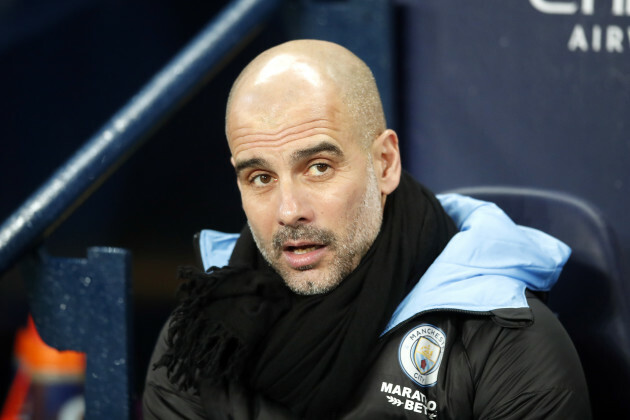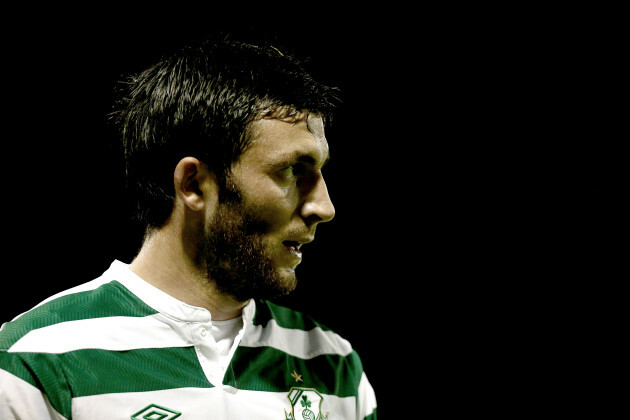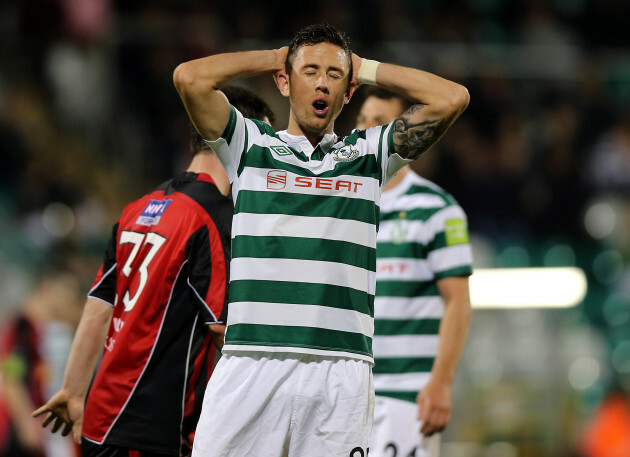PEP GUARDIOLA ONCE wrote the words of Marcelo Bielsa on a wall in his office.
“The moments in my life when I have improved are closely related to failure; the moments in my life when I have regressed are closely related to success. Being successful deforms us as human beings, it relaxes us, it plays tricks on us, it makes us worse individuals, it feeds our egos.
Failure is the complete opposite, it forms us, makes us more solid, brings us closer to our convictions, makes us more coherent. I was happy when I was involved with amateur football, I was happy when I matured into the job that I love. I have a deep love for football, for the game, for the corner kick, for the narrow space, for the long line on the pitch, for the football itself. Yet I despise all the rest. Let me be clear. The joy that comes with winning lasts about five minutes and what’s left is a gaping void and a loneliness that’s hard to describe. Never allow failure to affect your self-esteem. When you win, understand that praise and accolades are deceptive for they feed our ego and deform us. When you lose, the opposite happens. What really matters is the nobility of the resources at your disposal.”
Of course, unless your name is Guardiola or Alex Ferguson, a manager is highly likely to experience a significant failure at some point in their career.
Before enjoying considerable success at Liverpool, Celtic and Leicester, Brendan Rodgers left Reading by mutual consent after just six months in charge. Brian Clough had that infamous 44-day spell as manager of Leeds. Having conquered Europe with a thrilling young Ajax side and helped Barcelona win two La Liga titles, Louis van Gaal took over a Holland side that had reached the semi-finals at Euro 2000 and stepped down in ignominious fashion, after they couldn’t even qualify for the 2002 World Cup.
Stephen Kenny has still quite a way to go before he can be compared to the aforementioned names, but domestically, there are few Irish managers from the last 30 years who have enjoyed anywhere near the same levels of success. The five League of Ireland titles he has won as a manager is a record, jointly held with Pat Fenlon.
Yet as with almost everyone else, there are anomalies in Kenny’s career where things didn’t work out.
He won the league with Bohs and worked minor miracles at Longford, Derry and Dundalk.
Even his short-lived spell in Scotland was hardly an unequivocal failure. He took over a struggling Dunfermline side halfway through the season who were bottom of the table at the time and hamstrung by meagre resources. Though he could not prevent their relegation, he did get them to the Scottish Cup final, where they were narrowly beaten 1-0 by Celtic.
Yet the moment he describes as the worst of his career came at a petrol station in Lusk, when he got a call on his mobile telling him he had been sacked by Shamrock Rovers, after just nine months in charge.
Speaking on Eamon Dunphy’s The Stand podcast a few years ago, he recalled that difficult period.
“There was a lot going on in my life. I made the move rather flippantly,” he explained.
“Derry were looking to cut back. They had to do what was right for the club, I understood that.
“I was one of the rival managers. It’s never a great thing to move to a rival club.
“There was the Chris Turner and Eamon Zayed racial incident [when Kenny was managing Derry against Rovers]. I’d fallen out with one or two of the other players.
“I understood Tallaght. The crowds were fairly minimal compared to what it could have been. I understood what it took to win the league, the potential they had in Europe.
“We were flying. I thought there was absolutely no threat. We lost 1-0 to Bohemians in a match we should have won. And that was it.
“It was the lowest moment of my life, I think.
With social media nowadays, before you get a chance to tell your family, your children at school know their dad’s been fired at Rovers.
“I felt if I was given time there, I would have been successful.
“It was my fault in some regard that I should have had the team playing better than they were overall, but I was trying to bring a different style of play in, which some of the players were unsure about. I believed they should build from the back, they didn’t. We had good strong centre-backs but they hadn’t played out from the back previously. Stephen Rice who played in front of the back four, he had normally played facing the goal — he wasn’t encouraged to go and get it. So I was encouraging that. There were flaws in a few games, we just didn’t get a chance to rectify it.
“I was trying to play a certain way. They had been successful playing another way.
“But it wasn’t my best period and I didn’t perform to my best, there’s no doubt about that.”
One player who Kenny brought in at the start of his reign was Killian Brennan. The Drogheda native had worked with the manager previously at Derry City, enjoying great success there, winning the 2006 FAI Cup among other feats.
Kenny also tried to sign Brennan at Dunfermline, but was sacked before concrete talks could materialise.
“I wouldn’t say it was a friendship, but he was the kind of manager, like I never had before, who put an arm around you,” Brennan tells The42.
He did let you express yourself if you had the talent to do it, whereas some managers might not give you the licence to do it.
“He just said ‘look, just go and do what you want’. That gives you a bit of confidence every week when you win games.
“You kind of come out of your shell a little bit better and improve as a player.
“Could I see [him as a future Ireland manager]? I could definitely see his man-management skills were top notch, even though you obviously need a lot more to be successful at the highest level.”
In contrast to their time at Derry, both Brennan and Kenny had a brief and miserable spell at Rovers, with the player departing for St Patrick’s Athletic ahead of the following season, not long after the manager’s exit.
In many ways, it was a difficult task. Stephen Kenny was taking over Michael O’Neill, who had guided the club to two league titles and qualification for the Europa League — not since the famous four-in-a-row side of the ’80s had the Hoops experienced such sustained success.
With Kenny, widely regarded as the most accomplished manager at the league even then, it was expected that Rovers’ dominance would continue.
What manager wouldn’t jump at that chance? But I just think, he was successful in his other jobs, given that he kind of had the bare bones of a team and then he signed what he needed.
“The lads had been doing so well the year before with Michael O’Neill. I thought that was a hard one, because we had 30 players for him to deal with.
“I think at Shamrock Rovers at the time, we just had too many good players. And once there’s an expectation at a football club, the pressure is immense.
“Obviously, football is cutthroat, and if you’re not successful, you’re out the door.
“There were that many players signed where he might not have wanted half of those.
“If you gave him another year, I think he definitely would have turned it around, because he could have gotten rid of who he didn’t want.
“I was shocked [when he was sacked]. The manager is the one that gets the bullet in the end, but it was the players that didn’t perform for him.
But you don’t really learn if you’re successful all the time. You don’t really think about it when you’re doing well. It’s the low moments when you lose cup finals, you get sacked or you haven’t played that well, you have to reflect in your own mind and come back a better person. That’s not just football, it’s life in general.”
Like Brennan, Billy Dennehy worked with Kenny at both Derry and Shamrock Rovers.
Coming back after failing to breaking into the senior side at Sunderland as a youngster, he struggled to get first-team football at the Candystripes and left after only a few months to join Cork.
The player and manager’s paths crossed again at Rovers, and they discussed Dennehy’s disappointment owing to the perception that he had not been given a fair chance at Derry.
“Looking back as an older player, you can understand it,” he says. “Derry had some good young players in the team and were going quite well.
“James McClean was coming through at the time, Niall McGinn was there. So from Stephen’s point of view, a lad coming back from England, there was no massive reason for him to try to get the very best out of me, because he had good players there already.”
Dennehy admits he didn’t necessarily see Kenny as a manager who would go on to bigger things at the time, and the stint at Rovers was unlikely to have altered this view unduly.
“Michael O’Neill had done an unbelievable job. Trevor Croly and Jim Magilton were there as assistants and were a big part of it also. It was a very difficult environment for any manager to come into.
“Eight or nine new players came in as well that year that Stephen signed. That’s a high number of players to bring into a winning squad. That was probably a bit of a factor.
“It was a new coaching staff on that side of things for the players to adjust to as well.
“We were going for three leagues in a row at the time. The motivation and ambition was high as ever.
“[Gary] Twigg was there, Rice was there, the players who played over the last number of years were still there.
Coming back from being in the Europa League group stages, we’d been going for a long time, until December. We only had a short break and were then back into a full season again.
“From a coaching perspective, looking at it now, we started the season really well, but we did the exact same pre-season as the new players coming in who had a couple of months off, so maybe that was a factor in some players picking up injuries and suffering from fatigue.
“But overall, it was a big learning curve for Stephen in his career and he showed unbelievable character and resilience to bounce back from things not working out at your hometown club.”
Of all Kenny’s jobs over the years, the Rovers stint arguably comes closest to what he is about to experience with Ireland. There are a number of established players he will have to work with, while expectations are often unreasonably high among fans and pundits. Unlike at Dundalk and Longford, he won’t be able to rebuild a team virtually from scratch, and instead is required to mould the players he has at his disposal into a formidable outfit.
Nevertheless, Brennan is confident his former manager will prove a success ultimately.
I was reading [recent] comments by Gary Breen and Richard Dunne. One thing that was said was some of the players might not know who Stephen Kenny is, and that’s a valid point. But everyone goes in with a clean slate, including Stephen. He’s been in the set-up with the U21s for a while, and he’ll have in his mind who he’ll want to keep and who he doesn’t to keep. They’ll all be respectful of each other, because Stephen comes across really well. And if there’s no respect given, he’ll probably have no time for that person. But I think lads will put their heads down and if they buy into what Stephen is trying to do, there’s no reason why he won’t be successful.
“He’ll have to surround himself with a good backroom staff and all that kind of stuff. He’s been around and hasn’t had the profile of the likes of Mick McCarthy and other managers before him. But it could be a stepping stone for Stephen. If he does well from this, why can’t he go on to be like a Brendan Rodgers, managing at an even higher level?”
Inevitably, there will still be those that doubt whether Kenny can succeed at international level, but that is nothing new for the 48-year-old coach.
While the type of pressure is different, he’s in a far more enviable position compared to near the end of 2012, when he took over a troubled Dundalk side that only retained their Premier Division status the previous season by winning a promotion-relegation play-off. Had that gone badly, it is no exaggeration to suggest Kenny might never have managed again. Instead, he secured legendary status with the Lilywhites, guiding them to four league titles in five years and overseeing their famous Europa League run — something that never would have come to pass were it not for the debacle that preceded it.
- Originally published at 07.00




